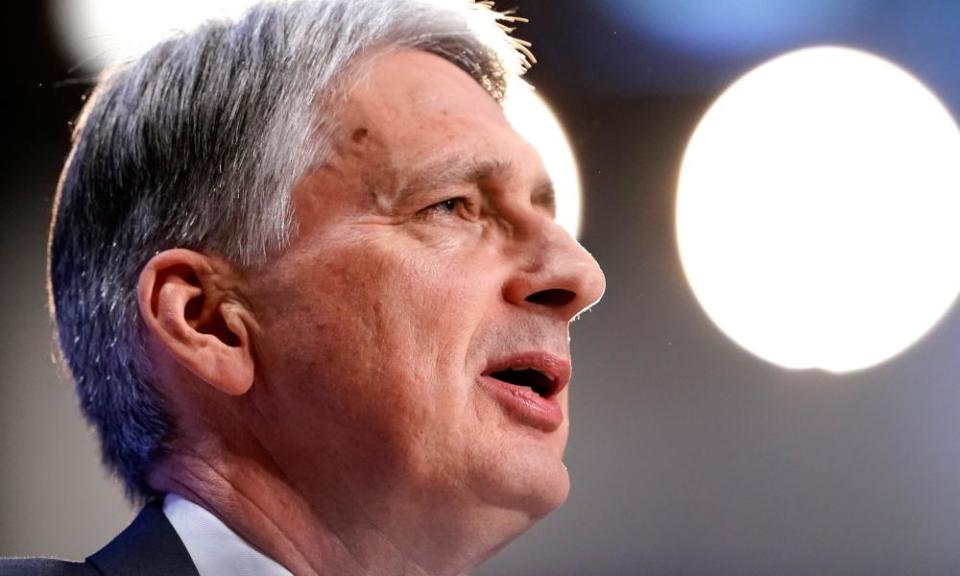Hammond 'would need £19bn a year to meet May's end of cuts vow'

Philip Hammond will need £19bn from higher taxes, extra borrowing or faster-than-expected growth if this month’s budget is to fulfil the prime minister’s promises to end austerity and boost NHS spending, according to the UK’s leading experts on the public finances.
The Institute for Fiscal Studies said the pledge by Theresa May at this year’s Conservative party conference to end eight years of cuts was “unlikely” to be compatible with the chancellor’s aim of balancing the nation’s books unless some tough decisions were made.
In its traditional pre-budget analysis of the budget options available to the Treasury, the thinktank said Hammond would need to find £19bn a year by 2022-23 to meet the government’s spending commitments for health, defence and aid, and to reverse planned cuts to public spending in other areas.
The IFS said this was a “minimal definition” of ending austerity because sparing Whitehall departments and local government further retrenchment would still leave £7bn of welfare cuts in the pipeline.
Hammond’s budget planning has been aided by smaller-than-forecast deficits in the first half of the current fiscal year but the IFS said the improvement would not be enough on its own to fund an “end to austerity”.
Nor could the chancellor rely on a Brexit dividend between now and 2022-23 because any reductions in net budget payments to the EU would be less than £1bn a year by then and could easily be eaten up by higher spending on border security.
Paul Johnson, the director of the IFS, said the chancellor had a big choice to make but that the “line of least resistance” for Hammond would be to borrow more and run a bigger deficit over the coming years than currently planned.
“He could end austerity, as the prime minister has suggested. But even a limited definition of what that might mean would imply spending £19bn a year more than currently planned by the end of the parliament. An increase of that size is highly unlikely to be compatible with his desire to get the deficit down towards zero.
“Alternatively, the chancellor could stick to his guns on the deficit and leave many public services to struggle under the strain of a decade and more of cuts. He could reconcile these demands by raising taxes, and in principle there are plenty of good options, but the overall tax burden is already high by UK historical standards and he could be constrained by the lack of a parliamentary majority. This is going to be the toughest of circles to square.”
The IFS annual “green budget” said Hammond could raise £19bn by raising taxes by 1% of national income. This would leave the UK tax burden at its highest level since the late 1940s – but near the middle of the league table of rich country members of the Organisation for Economic Co-operation and Development.
There were several options for increasing taxes in ways that would particularly affect relatively well-off members of the older generation and which would in general improve the efficiency of the tax system, the IFS said. These included taxing pension pots that are bequeathed, reforming council tax and making capital gains tax payable at death.
John McDonnell, the shadow chancellor, said: “This heaps yet more pressure on the chancellor to explain how he is going to deliver on the Tory promise of ending austerity.
“With billions of cuts in the form of universal credit still to come, and public services at breaking point, tinkering around the edges is not enough. It’s time the chancellor finally came clean about where the additional funding for the NHS is coming from.”

 Yahoo Finance
Yahoo Finance 